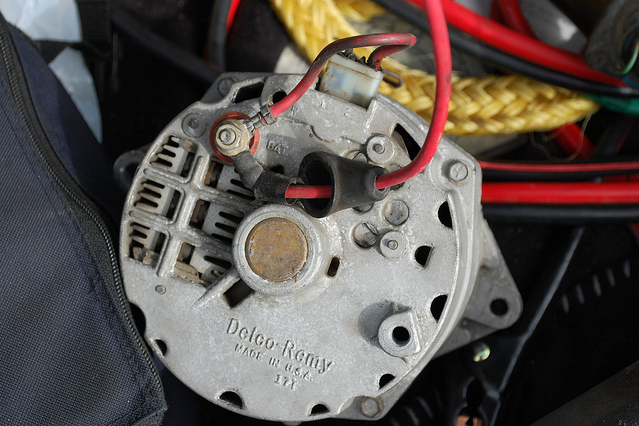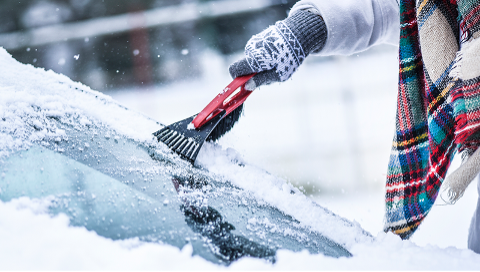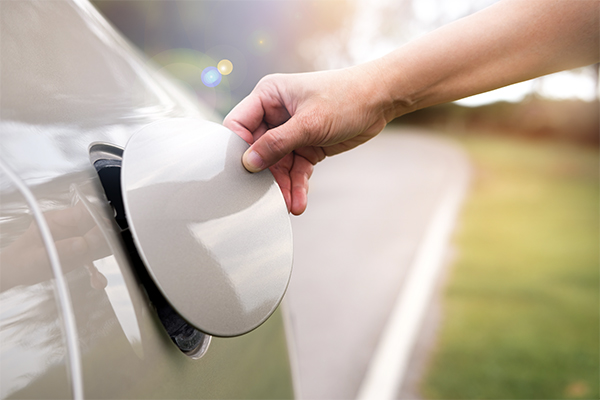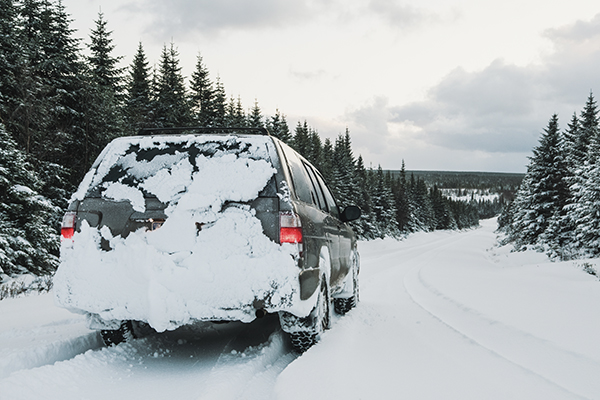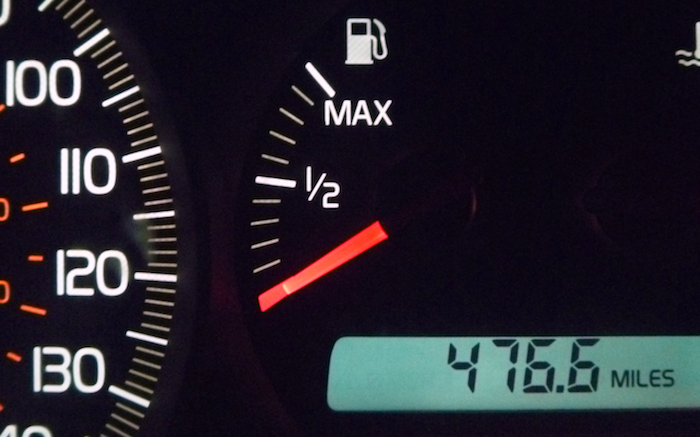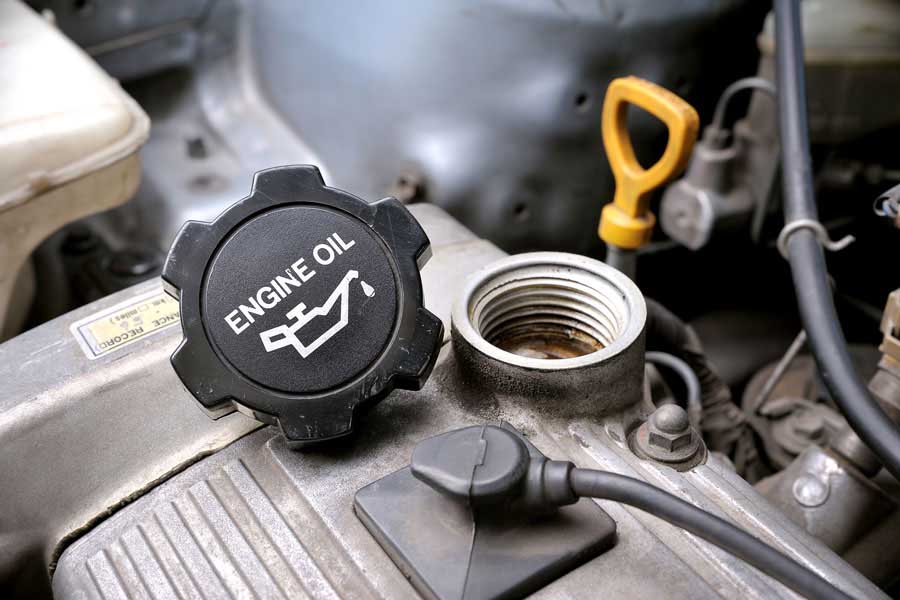
Source | Getty
We've all been guilty of driving across town to save a few cents-per-gallon on gasoline. A deal's a deal, after all. But there are ways you can save money on gas and improve your vehicle's fuel efficiency without ever leaving your driveway. Here's how.
1. Check your tire pressure
Keeping your tires at the proper pressure saves wear and tear on your tire tread and will help you meet the expected fuel mileage of your car. Use a tire-pressure gauge, compare the reading to your owner's manual recommendations, and adjust accordingly. Auto manufacturer engineers match specific tires to specific cars for a balance of ride, handling, and fuel economy, so it’s generally a good idea to adhere to their specs. Under-inflated tires may give you a slightly smoother ride, but they'll also negatively impact your fuel consumption.
2. Drive defensively—and steadily
"Defensive driving." You may remember this term from those exhilarating driver's ed classes. It means driving with anticipation, thinking a few moves ahead—like a chess player—rather than focusing only on the car ahead of you. The goal is to avoid fender-benders or, worse yet, a major accident. However, it's also useful for saving fuel; the more time you can spend at a steady speed (i.e. get that cruise control going), the less your engine will have to work and the more fuel you can save. Whereas big, sudden throttle inputs open the floodgates in your engine, smooth progressive inputs keep the fuel flow nice and moderate.
3. Get streamlined
For those of you taking extensive road trips or hitting the road with your bike rack, aerodynamics and weight are going to impact your fuel economy. When possible, try to pack everything in the car instead of in a giant roof rack. Your car will cut through the air more easily, and you'll save fuel because the engine won’t have to work so hard. For that matter, pack smart. Less weight equals better mileage. Clean out your trunk. It’s good to have some safety items like extra water and a blanket, but extra weight is the enemy of fuel economy.
4. Use fuel additives
Don't fear fuel additives. Look for those that contain polybutene amine (PBA), which can clean out deposits from carburetors, fuel injectors, and intake valves. They also may be able to restore your engine’s overall performance and help lower your carbon footprint. But don’t overdo it. Using too much of a particular fuel additive can actually cause damage, such as ruining sensors and other car features. Bottom line: choose a fuel additive that's right for your vehicle and use it according to directions. This can help save you time, money, and hassles in the long run.

5. Try synthetic motor oil
If you haven't already, upgrade to synthetic motor oil, which boosts engine efficiency, and change your oil on a regular basis. Check your owner's manual for recommendations specific to your vehicle. Want to learn more about the synthetic vs. conventional motor oil debate? Read about the differences between synthetic and conventional oil.
6. Avoid traffic jams
If only, right? Even with all of today's modern navigation systems, getting stuck in traffic happens to all of us eventually. But if you can plan a route that avoids congestion, even if you're driving a few more miles, you may be better off. That's because a stationary vehicle requires a lot of energy from the motor. On the other hand, so-called “steady-state” cruising is great for fuel economy. In a typical car, your MPG will increase by up to 50%!
7. Stay in-tune
Keep your vehicle properly tuned and increase mileage by as much as four percent. Fixing a seriously out-of-tune engine, like one with a faulty oxygen sensor, can improve mileage up to 40%.
8. Check your air filter
Here’s a statistic that just might surprise you: On newer cars with fuel injection and computer-controlled engines, the air filter does impact acceleration but does not impact fuel mileage. However, the air filter does impact fuel mileage on older vehicles without that technology. Either way, check your air filter.
9. Change your fuel filter
One filter that will have a direct impact on your gas mileage is your fuel filter. Manufacturers recommend changing your fuel filter every 10,000 to 15,000 miles. Even a tiny grain of dirt can clog injectors, leading to erratic performance and lousy gas mileage. This is an easy job you can finish in under 30 minutes, which will also save you from a visit to the shop. Find out how to change your fuel filter.
How do you save money on gas and ensure maximum proficiency from your fuel system? Let us know.
